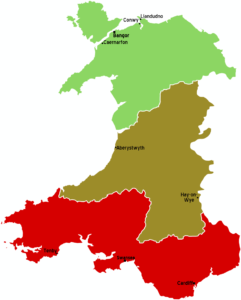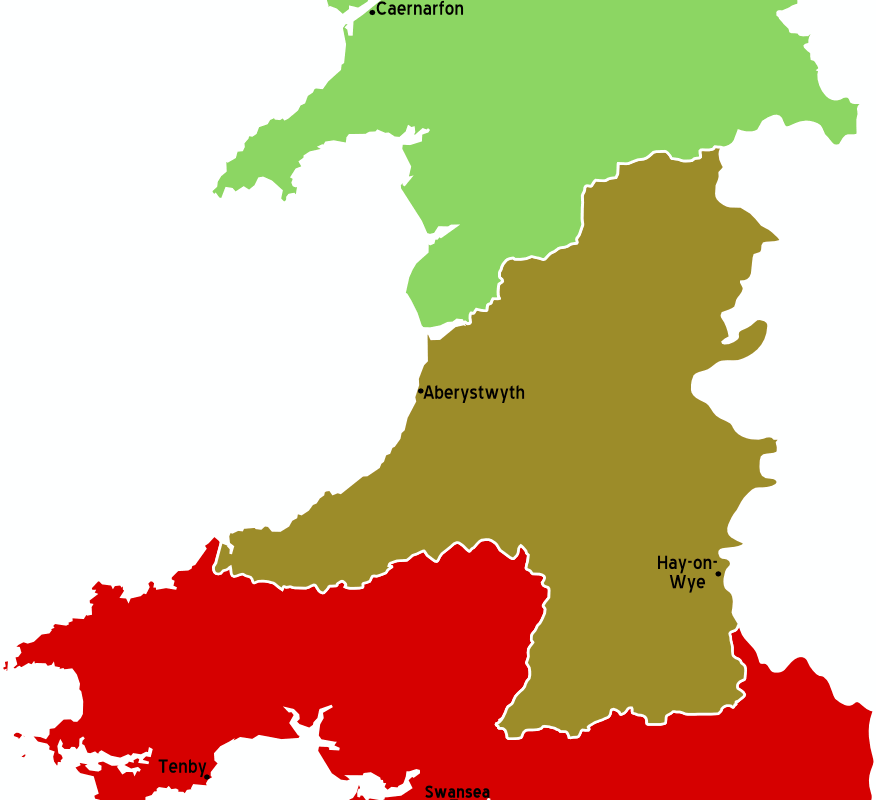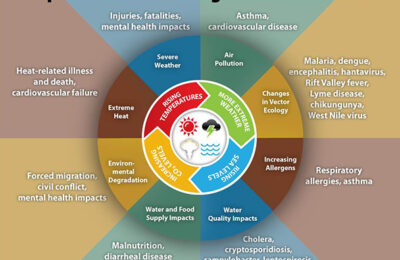Sean Thompson writes:

In a policy development that has been described by Friends of the Earth Cymru as ‘world leading’ and ‘a breath of fresh air that promises a greener and fairer transport system in Wales’ the Welsh government has halted or amended dozens of road building projects across the country on the basis of a series of tough new tests on their impact on the climate emergency.
The Welsh government announced a moratorium on all new road-building projects in June 2021 and established an independent expert panel with a brief to review the projects and establish tests that would help to determine when new roads are the right solutions for transport problems. The panel published its findings on 14 February and in welcoming its proposals, Lee Waters, deputy climate change minister, accepted the policy would attract criticism from some. ‘It’s always difficult to make decisions with short-term pain for long-term gain,’ he said. However, he insisted a ‘llwybr newydd’ (new path) was needed. ‘We will not get to net zero unless we stop doing the same thing over and over,’ he said.
‘We will still invest in roads. We are building new roads but we are raising the bar for where new roads are the right response to transport problems. We are also investing in real alternatives, including investment in rail, bus, walking and cycling projects.’
‘Our approach for the last 70 years is not working. The bypass that was demanded to relieve congestion often ends up leading to extra traffic, which in time brings further demands for extra lanes, wider junctions and more roads. Round and round we go, emitting more and more carbon as we do it, and we will not get to net zero unless we stop doing the same thing over and over.’
The panel’s recommendations are that future investment in new roads should only be for:
- Shifting trips to sustainable transport to reduce carbon emissions
- Reducing casualties where they are high, through small-scale changes
- Adapting roads to the impacts of climate change
- Supporting prosperity by providing access to development sites that will achieve high sustainable transport mode share
In addition the panel recommends that road schemes that are consistent with those purposes should meet four conditions:
- The scheme should minimise carbon emissions in construction
- The scheme should not increase road capacity for cars
- The scheme should not lead to higher vehicle speeds that increase emissions
- The scheme should not adversely affect ecologically valuable sites
On the basis of these criteria, of the 51 schemes that the panel evaluated, it recommends that only 17 should go ahead, usually subject to a number of modifications.
The panel recognises that there are two significant issues for which road schemes have been seen to offer a solution in the past, reducing the impact of traffic on communities and enabling efficient and reliable movement of freight, but suggests that those problems require the development of a different set of solutions.
As far as dealing with the impact of traffic and traffic congestion on communities, instead of yet more bypasses (and sometimes bypasses of bypasses) the panel recommends a shift of emphasis towards strategies to manage through-traffic in towns and villages. This could include:
- Traffic calming and 20mph speed limits.
- Public realm enhancements and reallocation of road space to reflect the ‘place’ function of roads through settlements.
- Public transport and active travel improvements.
- Traffic management, signage and HGV routing.
- Demand reduction measures.
When it comes to freight transport the panel found that the needs of the freight industry receive relatively little attention in scheme appraisals. It suggests that a reduction in private vehicle mileage will allow more efficient and reliable movement of road freight by reducing congestion and this is likely to be a more effective long-term strategy to support freight reliability than schemes that increase capacity of links or junctions. The panel also found that facilities for HGV drivers are shockingly poor and suggests that provision of lay-bys, parking facilities and rest areas at an appropriate density would assist drivers to comply with their working hours requirements, which would not only be good for drivers’ well-being but also for road safety.
However, while some of the savings from the cancellation of the 34 rejected road schemes might well fund some further investment in walking and cycling infrastructure (and the active travel budget for 2023 is already around £60m), a vital part of any sustainable transport strategy is the development of a cheap, convenient and reliable public transport system. The Welsh Government is committed to developing such a network; it has plans for Metro systems (networks integrating existing rail infrastructure with new tram and light rail provision) for North, Mid, West and South East Wales, although only South East Wales has seen much progress. Unfortunately there was no additional capital funding in the Westminster Government’s Autumn Statement for either 2023-24 or 2024-25 – this means the Welsh Government’s overall capital budget will be 8.1% lower in real terms in 2024-25.
Buses are by far the most used part of the public transport system – especially in the rural areas of Wales – and 80% of those who rely on buses have no car or other transport option. The Welsh government is committed to a nationwide publicly planned and controlled bus system and published a white paper entitled ‘One network, one timetable, one ticket: planning buses as a public service for Wales’ a year ago, but an essential prerequisite to the London Transport type transport system the Welsh Government is aiming for is the re-regulation of Wales’s privatised and fragmented bus network. The government introduced the Bus Services (Wales) Bill to the Senedd in March 2020, but due to the pressures on government resources from the Covid emergency it was withdrawn in June 2020 and the government has only recently put out an updated version for consultation.
Unfortunately, on the same day that Lee Waters announced the cancellation or major modification of 51 road schemes across the country he also had to announce that not all bus services currently subsidised in Wales will be funded by the Welsh government in future. Just as elsewhere in the UK, bus use in Wales collapsed during the pandemic and has still not recovered to former levels. The Welsh government has propped up services through funding from its Bus Emergency Scheme (BES), which was due to end in March but has been extended for another three months. Waters said the Welsh government would try to do what it could but it would not be enough ‘to keep the services as they currently stand’ and the government is yet to confirm how it will fund the bus industry beyond the summer.
Without a nationwide integrated public transport system, with bus services to every town and village at its heart, it will be difficult to defend this groundbreaking new direction for transport in Wales, putting sustainable travel at the top of the agenda, against those (particularly in rural Wales, where public transport hardly exists) who claim – with a measure of justification – that there is no alternative to the private car. Yet again, as with the Swansea tidal lagoon, a vital initiative that could play a significant part in responding to the climate emergency is being endangered by the Tories’ blind obedience to Treasury orthodoxy and its centralist instincts. It remains to be seen if a Labour government in Westminster led by Starmer and Reeves will be more supportive of radical policies in Wales that challenge the power of the roads lobby, but I’m not holding my breath.



